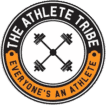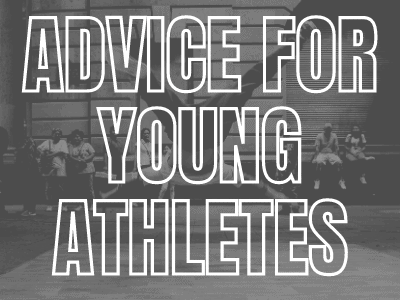So we posted on Instagram about advice for young athletes, and we wanted to add to these points:
Patience – you will make substantial gains in all physical qualities once you start to train correctly. Don’t be convinced that this is how it will always be. Developing physical qualities takes time, so be patient in your training. A huge mistake that we see in young athletes is training too heavy or using too much volume in their training. We only need the smallest dose to get the job done; anything more is not beneficial. Of course, we want to see you progressing, increasing loads, increasing bar speeds, jumping higher, running faster and improving your conditioning. But to do this, we don’t need to train hard all the time.
Consistency – Consistency is king when it comes to developing a skill. Strength and conditioning are no different. “Long-term consistency trumps short term intensity” – Bruce Lee. Be consistent in your training. Sit down and be honest with yourself and what you can do. How often can you get access to the gym? What are your time demands in school, at practice, travelling etc.? This then helps you to plan your training and then develop your training programme.
Variation – Lack of variety is essential when you start training. Too often we see young athlete change their programme from week to week. Stay with the programme until it stops working, which could be as long as six to eight weeks. You need to trust the process; a coach will help with this. Don’t worry about what other people are doing in the gym, how strong they are, how big they are. It’s about you!
Recovery – Pay attention to your recovery. “You’re young, so that means that you recover faster,” is often said by coaches. However, it’s not necessarily true. Of course, you are going to recover faster, but training is new to you; it has a higher stimulus on you. Don’t forget you are still developing. Energy is required for both restorations from training and also body development. Be open-minded to different types of recovery. Too often we get asked, “how many grams of protein should I be taking,” or “what supplements should I be using to help with recovery?”
Think about doing some yoga, learn how to relax and destress, which is a great tool to have for later in life. Get some sunlight, get out in nature and walk (without looking at your phone).Sleep – The number one tool for recovery is sleep. It would be best if you were aiming for 9-10 hours per night. To do this, you need the right environment. How’s your bedroom? Are you set up to sleep? Is it noisy, is it dark and what’s the temperature? Discipline to go to sleep is the most important discipline to master. If you are truly serious about becoming a professional athlete, develop this habit now!
Ask questions – The art of asking questions is essential for your development. Ask your coach why you are doing different exercises (in the right way). They should be able to give a rationale to why they are designing the training in the way they are. Asking the right questions shows that you are willing to learn and that you are coachable. Learn about the training, a skill that you will use for the rest of life.
Check out the amazing interviews with Ed Jackson and Craig White talk about advice to yourself and the importance of mindset.
Lee
Director and Founder
Join the tribe!!!
Email us if you have any questions info@theathletetribe.com or contact us here
Follow us on IG
#athletedevelopment #LTAD #rugbydevelopment #strengthandconditioning #theathletetribe

